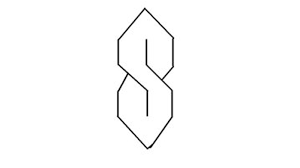Background: The sweater curse is a superstition commonly held in knitting communities. My informant is a 28 year old knitter from California who has friends who have claimed they experienced this phenomenon.
Me: I’m more of a crochet kind of girl, but I dabble in knitting. I’ve definitely heard of the sweater curse on the internet. I actually first found out about it like, right after I had the thought I should make one for my boyfriend. It was spooky! But anyway, what’s it all about?
A: Yeah, the sweater curse. Brutal stuff… Basically, the sweater curse affects girls [or boys, nonbinary people] who are knitting a sweater for their boyfriend [or partner, assume all characters can be genderswapped or gender neutral], and says that they will break up. Probably before the sweater is finished. It’s only supposed to affect unmarried couples, so it’s not that everyone who knits their partner a sweater is doomed. But yeah, knit your boyfriend a sweater too soon and you will pay the price.
Me: Geez yeah, why do you think this happens? Because anecdotally, this is totally true. Do you believe it?
A: I mean… yeah, I think there’s something to it. It happened to a close friend of mine a few years back. she was 25 and her boyfriend was the same age, and they’d been dating for like, 8 months maybe. She started working on this sweater for him as a Christmas present, like, back in the summer. Knitters can get so involved in their projects, you know that. I think probably even more so when you’re making it for someone special, so she was knitting ferociously and was putting a lot of her time into this, like, fairly complex sweater. Anyway, they broke up sometime around thanksgiving, which is kind of a thing of its own, y’know, breaking up before you have to meet parents… Family is stressful, being close to someone is stressful, and I think that’s why the sweater curse has merit to it. So much effort and love goes into making a sweater, it can be too much for some people. I think my friend’s boyfriend found out about the sweater around the time they broke up, and I don’t know too much about how it went down, but I think he might have been a little… off put. The sweater can signify a lot of commitment…
Me: Yeah, especially if that commitment is one-sided… I feel like girls who knit are pretty dedicated people.
A: You have to be if you tackle those big projects! If you date a guy who just isn’t reciprocating that energy, it’s probably not going to work out. You should save your sweater for someone you’ve uh, vetted better *laughter*
My thoughts: This superstition sounds silly at first, but there are a lot of reasons why a large, personal gift like a sweater can cause a reevaluation of the relationship, especially if the relationship is relatively new. I don’t think that anything handmade is a bad gift idea, but a sweater represents commitment to a degree that people are understandably uncomfortable with. The sweater itself can represent strangulation quite literally if it’s poor-fitting. It can also be very possessive, wanting to clothe someone in your work. I don’t think the intention is usually so negative, but the reception is what matters.
For more information on the sweater curse, see https://en.wikipedia.org/wiki/Sweater_curse

